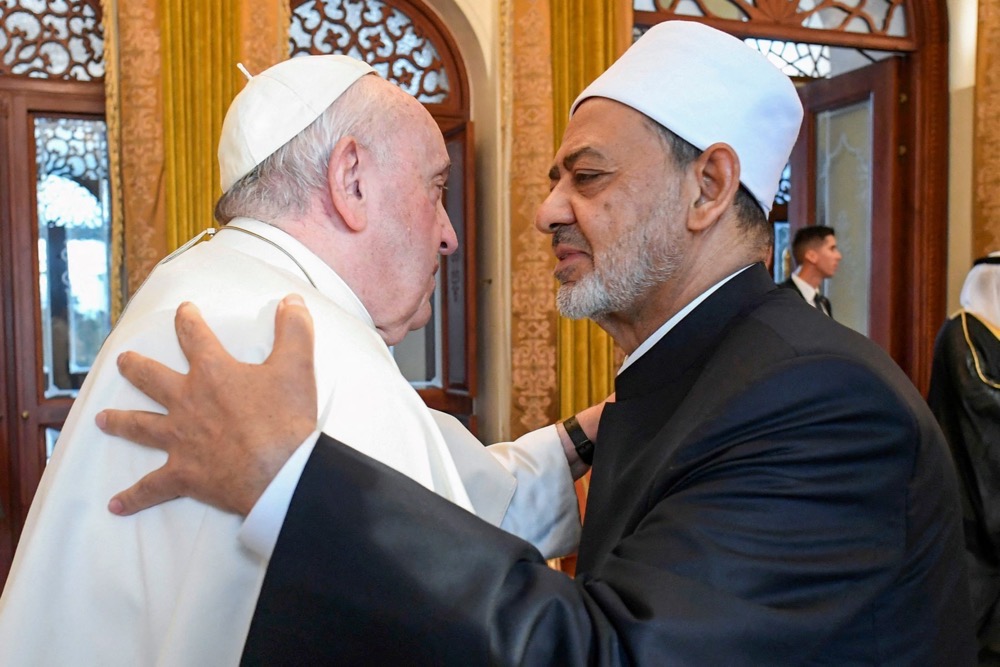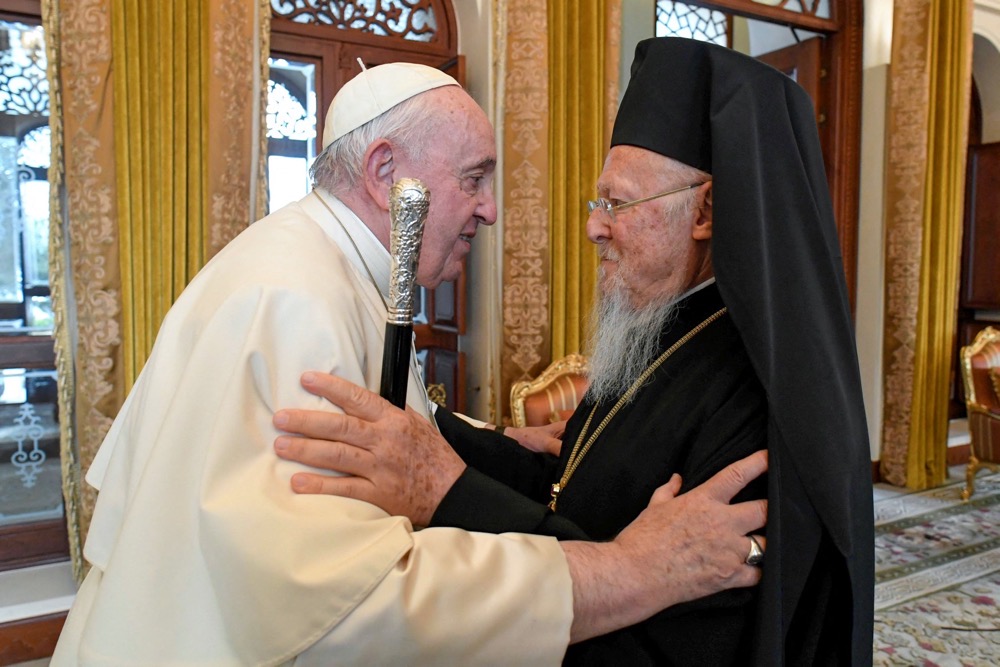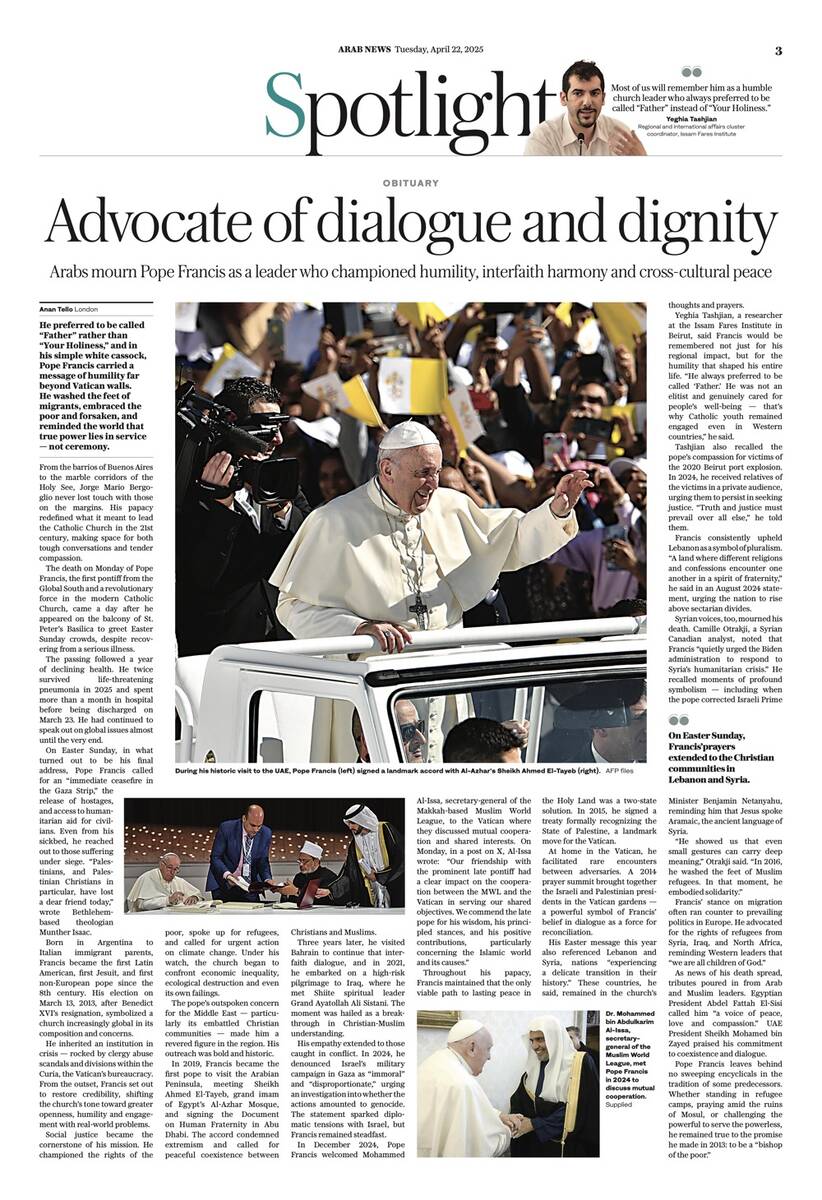RIYADH: As Gaza reels from an unrelenting conflict that has killed tens of thousands and left its infrastructure in ruins, Dr. Varsen Aghabekian, Palestinian minister of state for foreign affairs and expatriates, says Israel has no intention of stopping what she describes as a genocidal war — and continues to act with impunity.
Speaking on the Arab News weekly current affairs program “Frankly Speaking,” Aghabekian urged the international community to step in and halt the offensive, which she said has turned Gaza into a killing field.
“What can be done is a stopping of this genocidal war,” she said. “This impunity, which Israel has been enjoying for a long time, only begets more violence. And today, we see only destruction and killing of more civilians in Gaza.”
Aid to Gaza has been blocked for over a month and a half, and more than 60,000 children face malnutrition, according to international aid agencies. “It’s time to say enough is enough and halt this aggression — this genocidal war with the increasing brutality by the day on Gaza,” she said.
Aghabekian believes the collapse of the ceasefire agreement earlier this year was inevitable, given that Israel’s political and military leadership has made no secret of its broader intentions.
“The ceasefire deal will continue to fall apart because Israel has no intention of stopping this war,” she said. “Its defense minister, Israel Katz, said the other day: ‘We don’t intend to even leave Gaza, Lebanon, or Syria.’ These are very clear messages that this war will continue and will only bring more disaster to the Palestinians in Gaza — and probably the region at large.”
In the face of proposals from foreign powers such as the Trump administration to resettle Palestinians or repurpose Gaza for tourism, Aghabekian maintains that only plans rooted in justice and dignity will succeed.
“We know that the US has unwavering support for the Israelis,” she said. “Any plan for Gaza or the Palestinians must respect the dignity and the rights of the Palestinian people. Any other plan will not work and it will not bring peace to the region.”

Varsen Aghabekian says Israel has no intention of stopping the Gaza war and continues to act with impunity. (AN Photo)
A sustainable peace, she says, depends on international recognition of Palestinian rights. “These rights, as I said, are enshrined in the division plan in 1948. The plan set two states. One state is on the ground today. Now it’s time to materialize the second state,” she said.
She added that the Palestinian state has already gained recognition from 149 countries and has UN observer status. “This is not a contested land; this is an occupied land,” she said. “It is the land of the State of Palestine.”
During his last administration, US President Donald Trump championed normalization agreements between Arab states and Israel under the Abraham Accords. Despite acknowledging the widespread pessimism about his return to the White House, Aghabekian said she remains cautiously optimistic.
“If President Trump wants to forge peace and he wants to leave a legacy of peace, then that peace has a framework and it entails the respect and the rightful rights of the Palestinians,” she told Katie Jensen, host of “Frankly Speaking.”
“So, I remain hopeful that this will get to the table of President Trump and the ears of President Trump, and he sees that the future of the Middle East includes the rights of the Palestinians on their state as enshrined in international law.”
Her comments come as Israeli strikes on Gaza continue to spark international outrage. A recent attack on Al-Ahli Arab Hospital on Palm Sunday forced patients into the streets. Israel claimed the site was being used as a Hamas command center.
“The genocidal war in Gaza is not justified in any way you look at it,” Aghabekian said. “And bombing a hospital that is partially operating and part of a system that has been devastated in the last 19 months is not justified by any means. Bombing a Christian hospital on a Palm Sunday is extremely telling.”
Israel’s military campaign in Gaza came in retaliation for the Oct. 7, 2023, Hamas-led attack on southern Israel, which killed more than 1,200 people and saw another 250 taken hostage.
In 18 months, the war has killed at least 51,065 people, according to Gaza health officials. Last week, Hamas formally rejected Israel’s latest ceasefire proposal, saying it was ready to negotiate a deal that would see the release of all 59 hostages it is still holding, 24 of whom are believed to be alive, in return for an end to the war. Israel had offered a 45-day ceasefire in return for the release of 10 hostages.
Aghabekian said the continued killings of Palestinian civilians — including aid workers — in Gaza are a stark indicator of unchecked brutality. “Even after the ceasefire, we have seen that over 2,000 Palestinians have been killed, and these Palestinians are civilians; they have absolutely nothing to do with Hamas,” she said. “Today, nothing has been done because everything passes with impunity.”

Smoke rises from Gaza after an air strike, as seen from the Israeli side of the border, April 20, 2025. (Reuters)
Efforts to establish peace through regional diplomacy are ongoing. Aghabekian pointed to a three-stage Gaza reconstruction plan presented by the Arab League and backed by the Islamic world and parts of Europe. But she acknowledged the resistance it faces, particularly from the US and Israel.
“We have to continue using our diplomatic efforts,” she said. “We know that this military route is getting us nowhere. And our military efforts are directed at mobilizing the international community with several ventures today on ending occupation. We have the forthcoming international conference, spearheaded by France and Saudi Arabia, to take place in New York mid-year. And we have the global alliance on the materialization of the State of Palestine. And we will continue our efforts on the recognition of Palestine and the full membership efforts, as well as our efforts with international organizations, such as the Human Rights Council and UNESCO.”
Despite the challenges, she sees momentum building. “We’ve seen that in the latest summit, and we are seeing support and unity from the Organization of Islamic Cooperation (OIC). We’ve seen unity from European countries and others giving us positive vibes about the plan and the possibility of sustaining that plan in the future,” she said. “This is the only plan today on the table that may move us forward. It is very much — there’s a consensus on it, and it is in line with the Arab Peace Initiative of 2002.”
Still, the obstacles remain formidable. Israel’s latest ceasefire proposal reportedly calls for the disarming of Hamas and the release of all living hostages. Aghabekian warned such conditions are unrealistic given the devastation Palestinians have endured.
“A durable ceasefire entails, of course, meeting the demands of both parties, but today, the Palestinians have been crushed for the last 19 months,” she said. “A durable peace should bring them an opening of the borders, feeding the people, starting immediate relief on the ground, and doing whatever it takes to have this genocidal war stop. We hope that reason prevails on all sides, and we reach the stage today before tomorrow.”
Addressing criticism about the Palestinian Authority’s legitimacy, especially in Gaza, she acknowledged that ongoing hardships and political stagnation have eroded public trust.
“If we see something moving on the political track, people will start realizing that there is a hope for the future,” she said. “And today, whoever is responsible or who has the mandate on the occupied State of Palestine is the Palestinian Authority. And that authority needs to be empowered to be able to meet the needs of its people.”
The Palestine Liberation Organization, she said, remains the umbrella under which all factions must gather if unity is to be achieved. “Anyone can join the PLO, but you need to accept what the PLO stands for, accept agreements signed by the PLO, and accept the political vision of the PLO,” she said.
Asked whether ordinary Palestinians still have confidence in the PLO, Aghabekian said that trust is conditional. “I think that confidence can fluctuate based on what is happening on the ground,” she said. “And, as I said earlier, if people see something moving in terms of the vision of the PLO on a free Palestine, a sovereign Palestine, the liberation of the Palestinian people, bringing people a better future soon, then people will rally behind the PLO, and the PLO can look inwards and think of reform of the PLO.”

Speaking on the Arab News weekly current affairs program “Frankly Speaking,” Aghabekian urged the international community to step in and halt the offensive in Gaza. (AN Photo)
Turning to the West Bank, she expressed alarm at the scale of ongoing settlement expansion. “We’ve seen more and more land grab, we’ve seen increased brutality, we’ve been seeing increased violations on the ground, withholding of our tax money, displacement of people, attacks on UNRWA and refugee camps, grabbing of more land for agricultural herding — and this is something new for the Palestinians,” she said.
“There is entrenchment and emboldening of occupation on all levels.”
She called for greater pressure on Israel to comply with international law. “Statements are void if no actual measures are taken on the ground,” she said. “What needs to be done is holding Israel to account.”
Citing hundreds of UN resolutions and a landmark International Court of Justice opinion calling for the end of Israel’s occupation, she said enforcement mechanisms are long overdue.
“There are steps that are doable now in terms of what do we do with settler violence, with the settlers who are sitting on occupied stolen land. What do we do with settlement products? How do we deal with settlers who have dual citizenship. How do we deal with arms sent to Israel or sold to Israel?” Aghabekian said, adding that it was time for the international community to show its teeth.
While warning of the risk of a third intifada, she said the PA leadership is focused on avoiding further civilian casualties. “We do not want to transfer what is happening in Gaza to the West Bank, and partly it is already being transferred,” she said. “So, the leadership needs to spare the lives of the people.”
Aghabekian said the ICJ ruling provides a legal basis for action. “It has told the whole world that this is not a contested territory, this is an occupied territory, and this Israeli belligerent occupation needs to be dismantled,” she said. “There are steps that are doable.”
The PA is also preparing for governance in Gaza, should the violence end. “The Palestinian Authority is doing its homework and it is preparing and ready to shoulder its responsibilities in Gaza,” Aghabekian said. “There is a plan accepted by 57 countries for Gaza’s rehabilitation, immediate relief and reconstruction. And we hope that we are enabled to start working on that plan.”
However, she said implementation hinges on external support. “Those plans need billions of dollars, they need the empowerment of the Palestinian Authority in terms of actually practicing governance on the ground.”
Asked whether Israel or its allies might eventually accept a modified version of the Arab League’s plan, Aghabekian said all parties must be willing to talk. “It’s a give-and-take thing,” she said. “In the final analysis, what we want is to reach the goal of stopping this genocidal war and letting aid move in and for us to be able to start our relief and construction efforts. If this needs further discussion, I think we’re open for discussion.”
But the human toll continues to mount. “Palestinians will continue to lose their lives because Israel has no intent on stopping this war,” she said. “There is no justification for the continuing of the war, and an agreement can be reached if there is genuine intent.”







































